This Week in History
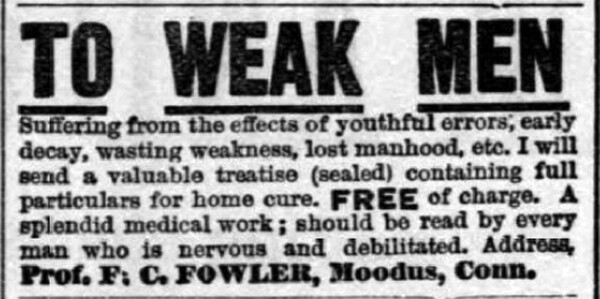
Duluth Herald
April 30, 1888
TO BEGIN BUILDING.
IMPORTANT NEWS FOR DULUTH REGARDING IRON AND STEEL.
The Engineer of the Duluth Iron and Steel Company on the Ground to Lay Out the Buildings – Work to Begin as Soon as Material Can be Gathered on the Entire Blast Furnace Plant at West Duluth – Other Iron News.
Saturday afternoon’s train brought to the city John Birkinbine, of Philadelphia, consulting engineer of the Duluth Iron and Steel company. Mr. Birkinbine has made all plans for the blast furnaces, steel converters and mills of the company, and his present trip to Duluth is to make the final arrangements for the commencement on the first buildings. The site of the works has been leveled and prepared, and from his long experience in blast furnaces and works of similar character Mr. Birkinbine will be able to tell at a glance the best location for each of the buildings to be erected. Work begins first on the foundation of the 140-ton blast furnace, to be followed at once by the casting, stock and engine houses, rolling mills, etc. It is not expected that any part of the work will be ready for business before the opening of navigation in 1889, for it takes much time to properly build such immense works as are planned; but it is intended to have everything ready to go nto blast as soon as coal can be received from the lower lakes next spring and prepared for the furnaces. The ores to be used will be the famous Bessemer ores of the Vermillion, mixed to a certain extent with the softer ores of the Gogebic. An average of one car of ore daily is being shipped to Ashland for the mixing with the Gogebic ores at the charcoal furnace there. The Minnesota Iron Co., has just sold 75,000 tons of ore to be shipped to Troy, New York, during the season. This is the greatest distance any Vermillion ore has ever been sent, and there, virtually on tidewater it comes intpo direct competition with foreign ores, which, owing to its superior quality and to certain custom house regulations as to weighing and demurrage it is able to replace even these. It is indeed a triumph for the Minnesota iron mines that they are able to ship ore to a city virtually on the Atlantic seaboard.
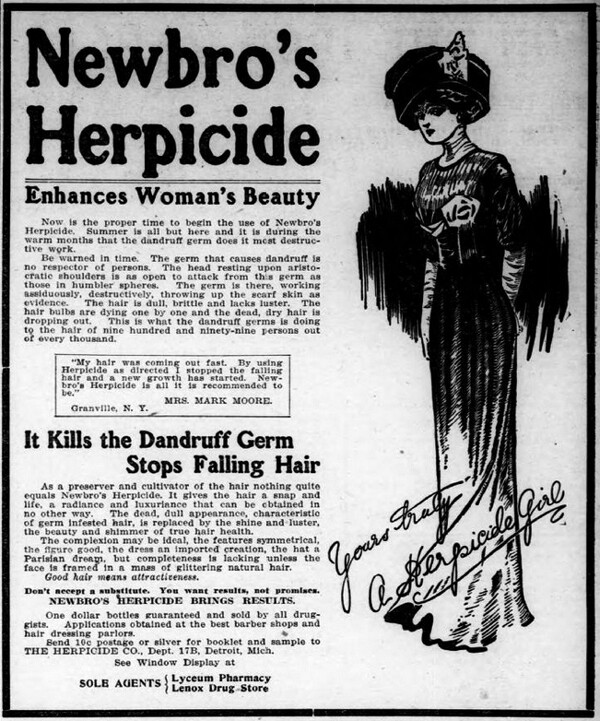
Duluth Herald
May 3, 1890
WHAT 1890 WILL SHOW.
Municipal Improvement of the Year Assured and in Prospect. A Quarter of a Million to be Spent on Streets and Sewers. Since the people of Duluth have3 begun paying their real estate taxes for the current year, they have come to realize more than ever that street improvements are indeed an expensive necessity. The work laid out for this year will necessitate an expenditure of at least $225,000, which is, however, considerably less than for either of the past years. The estimated expense of the work unfinished from last season is $1500 for completing the work of grading Fifth street from Twelfth avenue east to Fourteenth avenue west, and $22,283 for completing the paving of Fifth avenue west from the St. Paul & Duluth tracks to a point within 200 feet of the dock line. This will make the total cost of improvements for this season over $250,000. The work on East Superior street, let last year, is now progressing rapidly. In the way of sanitary sewers there are a number already under contract and several more ordered. Those under contract are the following: Fourth street from Seventh avenue to Tenth avenue east to cost $1879.90; Third alley from Fifth to Sixth avenue east, to cost $1248.90. This certainly makes a great showing for one year, and yet still is not all, of nothing has been said about the sidewalks, of which several miles will be built. It is impossible, however, to make any estimate of the cost of these, as in a great many cases the walks are to be laid out by the property owners themselves.
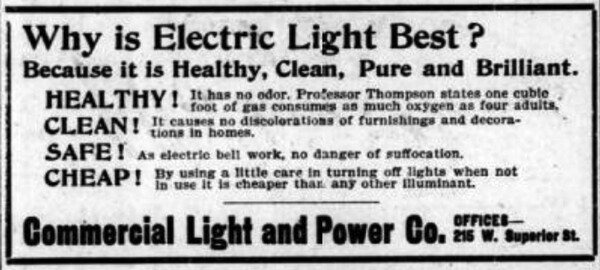
Duluth Herald
April 30, 1900
NEW PETITION.
Biwabik Named as Temporary County Seat In Eveleth’s Petition. The second county division petition is out. Eveleth has put it into the field by instead of naming that village as the county seat the suggestion advanced by P. E. Dowling a week or more ago and endorsed by P. R. Vail has been followed. A neutral point has been named as the temporary county seat. Biwabik is the place selected. It is admitted that when the people of the new county, if there should be a division, come to vote on the selection of a permanent county seat, the contest will lie between Eveleth and Virginia and that no other towns will be in it. The Eveleth Star, Mr. Dowling’s paper, has this to say of the new plan: “As no compromise could possibly be reached between Eveleth and Virginia, there was but one thing to be done that of selecting a neutral point. If ever the county division scheme offered favorable consideration, that time will be at hand this fall. Of course, there are many even now who do not favor the plan, but when the causes and just reasons are given by the press of the ranges and in Duluth from time to time, there is little doubt but what the plan will carry in he fall election.” The new petition also differs from the Virginia one in that it leaves about half a township more in what will be St. Louis county of the division carries.
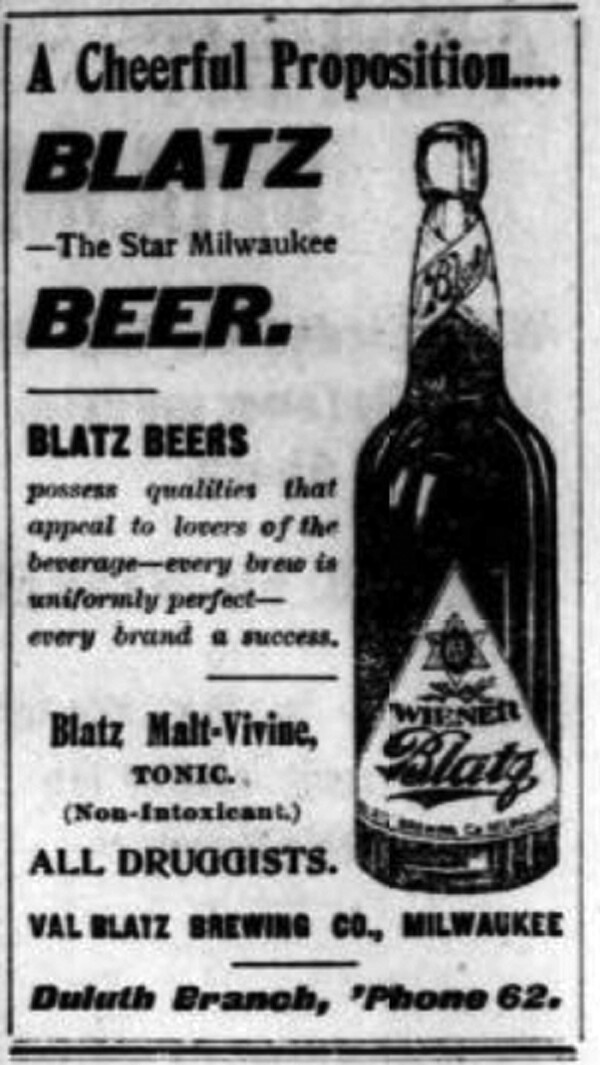
Duluth Herald
April 30, 1910
PROHIBITION FINDS NO WARRANTY IN CHRISTIANITY, SAYS RABBI LEFKOVITZ
Personal Example of Jesus Mitigated Against It. Claims It Is Un-American, Unreligious and Un- democratic.
Rabbi M. Lefkovitz of the Temple Emanuel said last night in an address in the temple that prohibition “finds no warranty in Christianity.” He declared that the personal example of Jesus mitigated against it. “The attitude of Judaism towards prohibition is unqualified and absolute negation,” he said. “We find no warranty for it in the Biblical or rabbinical law.” The speaker declared that rabbinical law requires that each Sabbath and religious holiday should be ushered in with a glass of wine in significance of the blessings and bounty of God as well as the benefactions and joys of life. “The bible,” he said, “speaks of wine as that which cheereth God and man” and wine was an essential feature of the Biblical ceremonials and sacrifices. “Prohibition is unreligious. Religion recognizes the existence of evil and tries to strengthen man to overcome it. Prohibition tries to weaken man by destroying the possibilities of evil. Religious method is persuasion while prohibition is versed on coercion. “Prohibition runs contrary to the principles of justice, the legislation it seeks to have made would render valueless large investments made under the protection of the law of the land. “Prohibition is un-American and undemocratic. America guarantees to each of her citizens the inalienable rights of life, liberty and the pursuit of happiness and to attempt to dictate as to what a man shall or shall not drink is to interfere with one’s right to further one’s happiness as one deems right.” Although the Jewish people are accustomed to the use of wine from childhood, a Jewish drunkard is unknown, declared the rabbi.
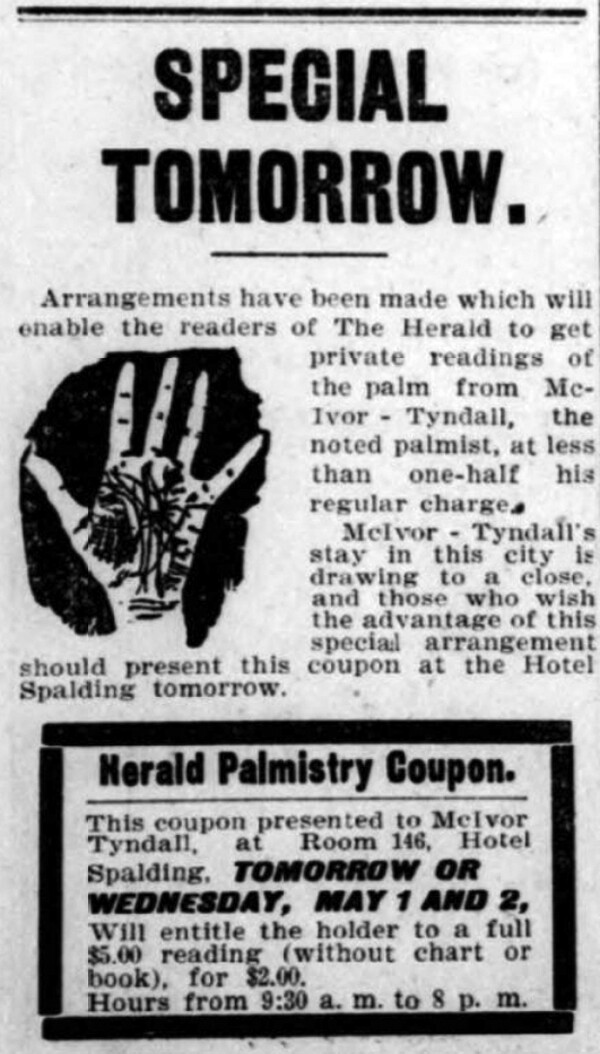
Duluth Herald
April 30, 1920
NEAR 800 MEN QUIT WORK IN CITY MAY DAY
Hundred and Sixty Electricians Go on Strike; 600 Carpenters Suspend.
One hundred and sixty electricians of Duluth will be on strike tomorrow and 600 carpenters may strike next week unless a settlement between the unions and employers is effected. Stationary engineers and firemen of Duluth buildings, while not threatening to strike, have started a campaign for an increase of wages which they claim has been due them for the last three years. The electricians of Duluth are demanding $1.10 per hour. Managers of electrical shops claim to have offered the en 90 cents an hour, an increase of 10 cents an hour over the scale paid last year. One boss electrician on West First street announced that his shop would not accede to the demands. He asserted that it is the purpose of the shops to operate as “American institutions” and that they intended to keep away from what he termed “autocratic demands of unions for a closed shop.” He said that when needed there would be sixty men imported to the city to take the jobs left open.